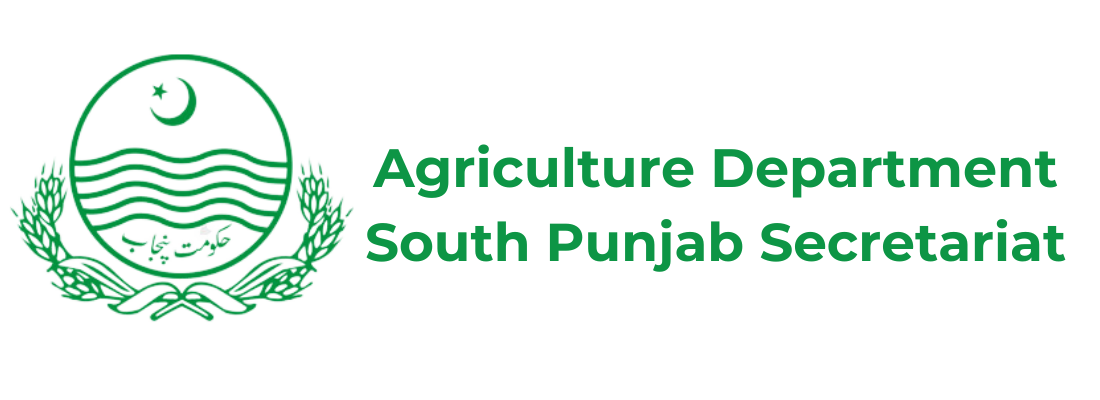Our Strategy
Agriculture plays a pivotal role in bolstering the provincial economy, contributing significantly to more than 21% of its GDP and serving as the primary source of livelihood for 47% of its workforce. It is a vital pillar of support for the less privileged in our society, ensuring their sustenance. The nation’s food security heavily relies on the success of our agricultural endeavors. Agriculture also serves as the backbone of our foreign exchange, accounting for roughly 80% of our earnings in this regard, with Punjab alone contributing over 60%. Moreover, it stands as the principal source of raw materials for various industries, particularly textiles, edible oils, and rice processing.
Investment in agriculture within Punjab not only promises substantial returns but also generates employment opportunities in rural areas, effectively curtailing the migration of rural populations to urban centers. This, in turn, serves as a potent means to alleviate rural poverty. The Punjab Government has set forth a mission to cultivate a science-based, dynamic, and internationally connected agricultural sector. This sector aims not only to address the challenges of food security but also to compete vigorously in both domestic and international markets. Our vision is to forge public-private partnerships to realize this mission.
To achieve these objectives, the Agriculture Department has developed a comprehensive strategy encompassing key initiatives and measures for governance enhancement, which are detailed below:
Development Strategy
Enhancing Productivity for the Improved Livelihood in Rural Areas
- Increase the flow of scientific innovations
- Bridge the yield gap between progressive and resource-poor farmers
- Promote diversification to high-value crops and vertical integration to increase small farmers’ income
- Provide resources, skills, and information to enable small farmers to be linked with consumers, especially in high-value markets
Improving Government’s Ability to Meet Food Security Challenges
- Reduce expenditure on holding big wheat reserves in the public sector
- Promote grain storage in the private sector
- Develop future agricultural commodity markets and promote pledge loaning
- Make well-informed decisions based on accurate information such as production, stock, import and export prices, etc., and scientific prediction
Reduce Regional Disparity
- Special emphasis on building institutions, providing resources, and training small farmers in the neglected region of Southern Punjab
- Encourage production of high-value crops to high potential marginal lands in Thal and Cholistan
Sustaining Agricultural Resources
- Agricultural production will be transformed from input-oriented to knowledge-based systems. For this purpose, efficient energy, water, pesticide, fertilizer, and labor utilization and management systems will be developed and promoted
- Unnecessary conversion of agricultural lands into urban settlements will be discouraged
Key Initiatives
Revamping of Punjab Agricultural Research Board (PARB)
- Identify stakeholders’ issues through their involvement
- Fund output-oriented research on a competitive basis
- Ensure commercialization of research outputs through stakeholders’ involvement
- Enhance national and international collaboration
- Import of new technologies for local adaptation
Establishments of Seed Units
- Provision of basic and pre-basic seed to the private sector
- Sell established varieties/hybrids to the private sector on a competitive basis
Promote IPR based Technology Environment
- Provide government guarantee to Monsanto for the technology fee for the use of its latest cotton technologies
- The willingness of the Government to sign similar deals with other tested technology providers
Promoting Food Quality, Safety, and Traceability through Star Farm Concept
- Training of six master trainers
- Capacity building of extension agents, traders, processors, and farmers
- Establishing the trading platforms through Star Farm Franchising
- Developing forward and backward linkages of the trading platforms
Establishment of Punjab Agricultural Marketing Company
- Identifying key marketing investment areas
- Developing business models for identified areas
- Invite and encourage private investment in identified areas
Crop Maximization
- Fruits and Vegetable Development Project
- Provision of farm mechanization service on a sharing basis
Governance Improvement Measures
Enactment of Seed Act
- Provide the private sector with a legal space in the seed business
- Provide an enabling environment for the private sector to operate
- Replace the inefficient seed certification mechanism with a truth-in-labeling testing mechanism, which is more private-sector-friendly
Enactment of the Pesticide Act
- To improve pesticide quality, registration and monitoring of pesticide trade, manufacturing, formulation, sale, and use is being taken up by the Punjab Government
- Standardization of pesticide machinery
Intellectual Property Right (IPR) Act
- Ensure the ownership right to the inventor
- Every inventor can sell the innovation with an appropriate technology fee
Market Act
- Allow the private sector to establish various kinds of agriculture markets
- Limit the role of the Market Committee in the premises of the public sector markets
- Democratize the Market Committees that manage the public sector markets
- Develop efficient market models and encourage private-public partnerships in establishing these markets
